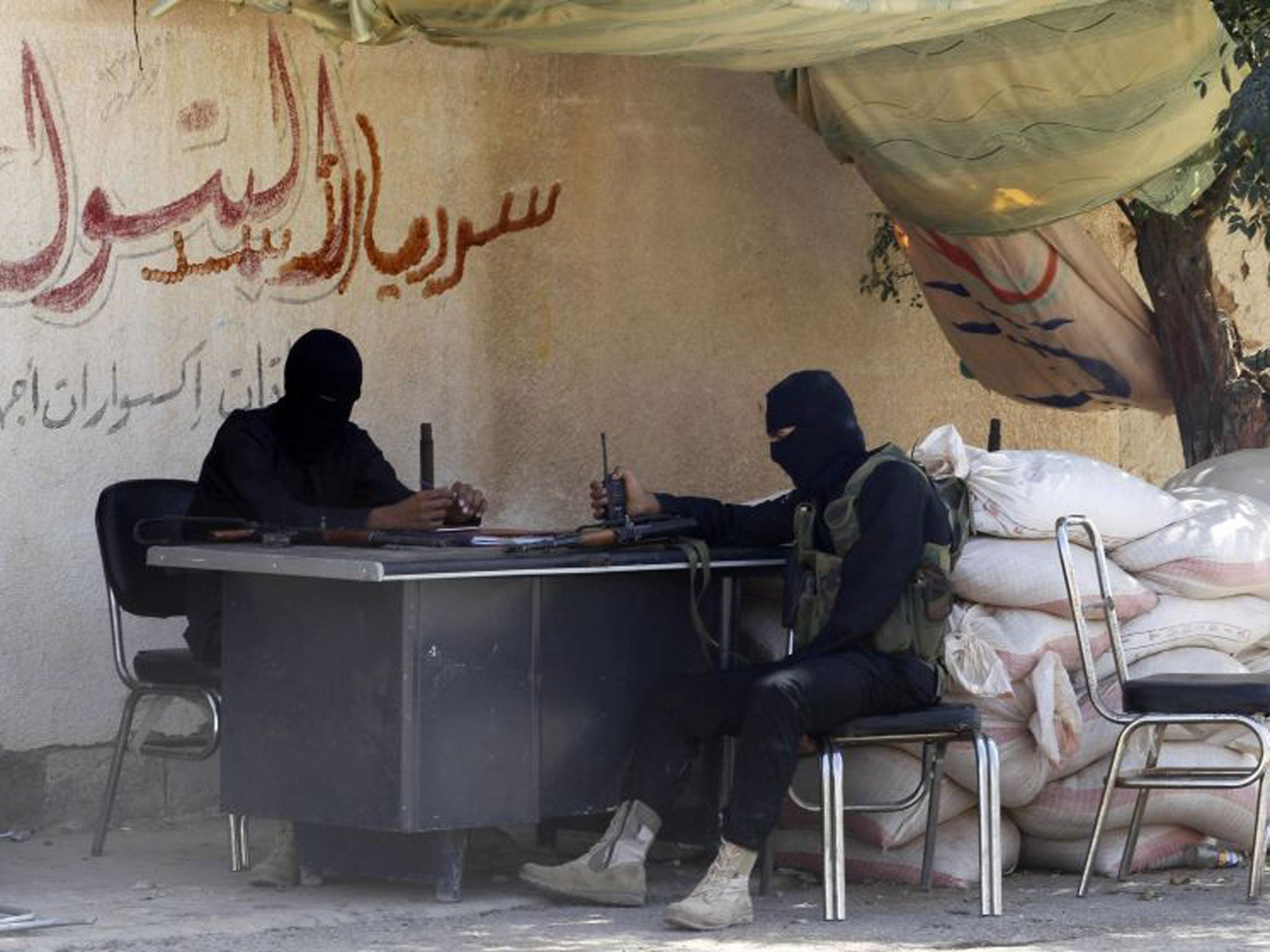Planning, not rifles, is what the Syrian rebels say they need from the fickle US
As Assad and Putin ‘outmanoeuvre’ Obama, fighters expect more from their Western ally. By Kim Sengupta


A rebel group I was with in Syria got hold of their first Kalashnikov 18 months ago. It was regime issue, not captured, but bought from a soldier for $2,000.
The ammunition cost $5 a round across the border in Turkey. This week, an opposition leader obtaining supplies for his fighters was offered 70 cents a round and the same type of AK-47 rifle at $200 each.
Reports that the CIA is supplying small arms to those fighting the troops of Syrian President Bashar al-Assad, months after the US signalled its intentions to do so, has not led to an outbreak of euphoria among the rebels. They are only too aware that the weapons which may actually be game-changers, anti-aircraft missiles, would not be forthcoming from the West.
Delegates meeting in Istanbul for a conference of the opposition’s umbrella group were of the view that the news has come as an attempt to placate them after Barack Obama’s failure to carry out military strikes despite acknowledging that the regime has crossed his declared ‘red line’ by its use of chemical weapons.
In Istanbul, the Geneva meetings this week have not been viewed as paving the way towards a general peace settlement. Instead, many say that Assad, with the help of his main ally, is outmanoeuvring President Obama and escaping punishment.
Salem al-Meslet, a senior member of the Syrian National Coalition, said: “They are leaving the murderer and concentrating on the weapons he was using. It is like stabbing someone with a knife, then they take the knife away and he is free.”
The revolutionaries say they must confront Assad themselves and obtaining light arms to do so is no longer as much of a problem as it used to be. A wide variety of weapons, including anti-tank missiles, mortars, rocket propelled grenades, heavy- calibre machine-guns and recoilless rifles are now available thanks to a wider flow of cash from the Gulf states and especially in recent months, from Saudi Arabia.
The rebels have also gained a significant amount of war booty after overrunning a number of regime positions. One of the most lucrative yield was at an air force base, Minakh, last month near Aleppo which had artillery and armoured cars as well German made MBB 223 Flamingo trainer aircraft and even a few Russian supplied Mi-8 helicopter gunships.
The fighters who stormed the base, Chechen and Caucasians, members of al-Qa’idas Islamic State of Iraq and Syria (Isis) had no means of utilising the aircraft for jihad. Abu Khalid, a rebel officer from the Farouq Brigade, a more moderate group, recalled near Aleppo last week: “They were saying they had asked their emirs to send them pilots. I don’t know if they will ever get them. But I think they are hoping, so far they haven’t stripped down the planes and the helicopters.”
Sending semi-automatic rifles will not, there is general consensus, have much impact on this heavily- weaponised conflict. Mustapha Omar, a businessman who helped finance fighters at Ghouta, the area next to Damascus where the chemical attack which led to President Obama’s air –strikes was carried out, said: “One of the reasons why ammunition is so cheap is because the Syrian pound is falling so much in value and we are still paying for a lot of things in Syrian pounds. So an AK [47] round is now the equivalent of 70 cents. We have been offered Aks for $ 200 each, but for that we have to buy 10,000 of them.
“What we need from the Americans is not rifles. There are plenty of others prepared to provide better, bigger weapons. What we need is planning and organisation. They are doing something about that, but it is not really satisfactory.”
Training camps have been set up in Jordan with American, British and French former service personnel as instructors. President Obama announced last week that the first 50 graduates from there have now gone into Syria. “We’ve got army defectors, officers, fighting for us and the Americans want us to send them for training. But we can’t spare them from the field because they are the ones with the skills and experience. They should get new recruits and train them so there is a steady supply” was Mr Omar’s view.
Accounts of what the camps provide and the support given to them by foreign forces vary. A French media report claimed recently that Israeli, as well as American and Jordanian commandos had taken part in a joint CIA operation in which they joined with 300 rebels in Deraa in the south-west of the country. Training centres had been set up, it maintained, inside Syria.
But Mahmoud al-Hamadi, a fighter who had attended one of the Jordanian camps recalled a two and half week course “In which we were given training with light weapons which we didn’t need. There were also some paper exercises and lessons on how to find mines. Maybe things have changed, but that was the way three months ago.”
The rebels The Independent spoke to in Syria denied seeing American or European forces inside Syria. As for the presence of Israelis, Mr al-Hamadi hooted with derision:“That is the stupidest story I’ve heard, do you really think we would accept that? Can you imagine the propaganda Bashar and the Iranians can do with that?”
Join our commenting forum
Join thought-provoking conversations, follow other Independent readers and see their replies
Comments